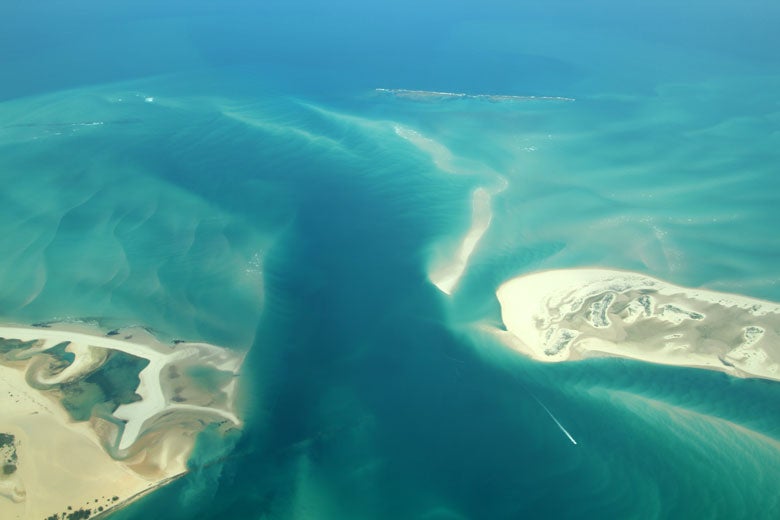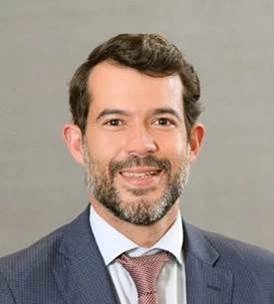
An innovative World Bank project with a co-management agreement hopes to make conservation more equitable in one of Mozambique’s most beautiful national parks.
If paradise exists, it looks like central Mozambique’s Bazaruto archipelago. White-sand beaches and sky-high dunes ring Indian Ocean islands draped in forest, savannah, and wetland. Crystal-clear waters support an abundance of marine-life—manta rays, sharks, and whales make their homes amongst the mangroves, beds of algae, and coral reefs.
Declared a National Park in 1971, Bazaruto is a marine sanctuary for endangered species, such as the rare and charismatic dugong—the manatee of Africa—of which the archipelago supports the only viable population in the world. For those who can afford the price tag, Bazaruto’s boutique lodges, scattered throughout the archipelago and National Park, offer an opportunity to revel in luxury.
Look a little closer, however, and this archipelago is far from a paradise for the area’s 5,000 human residents who have limited access to clean water, sanitation, and electricity, and who rely on the area’s natural resources and tourism industry to survive.
Spread across seven communities, 75% of households rely on small scale fishing; others grow crops and harvest resources, such as sand oysters, and work as unskilled labor in the archipelago’s resorts. But such opportunities for locals in tourism are limited, and the exploitation of marine resources is leading to a high rate of by-catch and the destruction of seagrass. The coral reefs are suffering from anchor damage and over-fishing, both by locals and other fishing communities that travel to fish in Bazaruto’s clear waters.

Sharing the proceeds
Through MozBio—a $46 million Bank-Global Environment Fund financed project—the World Bank is working to improve the management of Bazaruto National Park. MozBio aims to strengthen people’s livelihoods with activities that combat the over-exploitation of natural resources, and promote conservation agriculture and environmental education. It also plans to improve the impact of tourism on development by expanding revenue collection and infrastructure to make sure local people benefit from the profits.
While local communities do already receive a share of the tourism revenue generated by the National Park, which provides them incentive to contribute to conserving the area, many tourism concessions have been granted to operators without paying concession fees, limiting the amount of revenue the Park and its communities receive. The park’s management capacity is also low, and opportunities for skilled positions in tourist lodges tend to go to people coming either from the mainland or abroad.
To assist in bringing more revenue from tourism to the local people, the Bank is supporting the development of a new community eco-lodge. The project is an innovative joint venture between local communities and a private operator (Far and Wild) selected through a rigorous public tender process. Communities will own the government-awarded concession and the infrastructure, which will be built with equity from the Bank on behalf of the communities.
“Nature-based tourism can be an effective tool to promote rural development,” says Mark Lundell, World Bank Country Director for Mozambique, the Comoros, Madagascar, Mauritius, and Seychelles. “This venture between a local community and the private sector shows how the Bank can help leverage private financing for sustainable natural resource management and rural development.”
Tackling complex issues and transforming Bazaruto National Park for the better requires the management capacity to oversee tourism operations and ensure they comply with the law, and to collect revenue and maintain the park’s infrastructure. To address these, the Bank has been championing a change in the way Mozambique manages its conservation areas.
In a move to strengthen conservation management, the Government of Mozambique has signed a 25-year, renewable partnership agreement with African Parks, a conservation NGO that leads co-management agreements in Africa. African Parks will bring significant technical expertise and additional financing to help transform the National Park, and has developed a 5-year business plan for it.
So, the future of this stunning and irreplaceable landscape looks brighter. These three things together—MozBio activities, the agreement with African Parks, and a government commitment to improve management practices (sustainably conserving natural resources and channelling more revenue back into local communities)—give us hope that the Bazaruto archipelago will become even more of a paradise than it already is, and not just for those who can afford to enjoy it, but for all those who call the archipelago home.



Join the Conversation